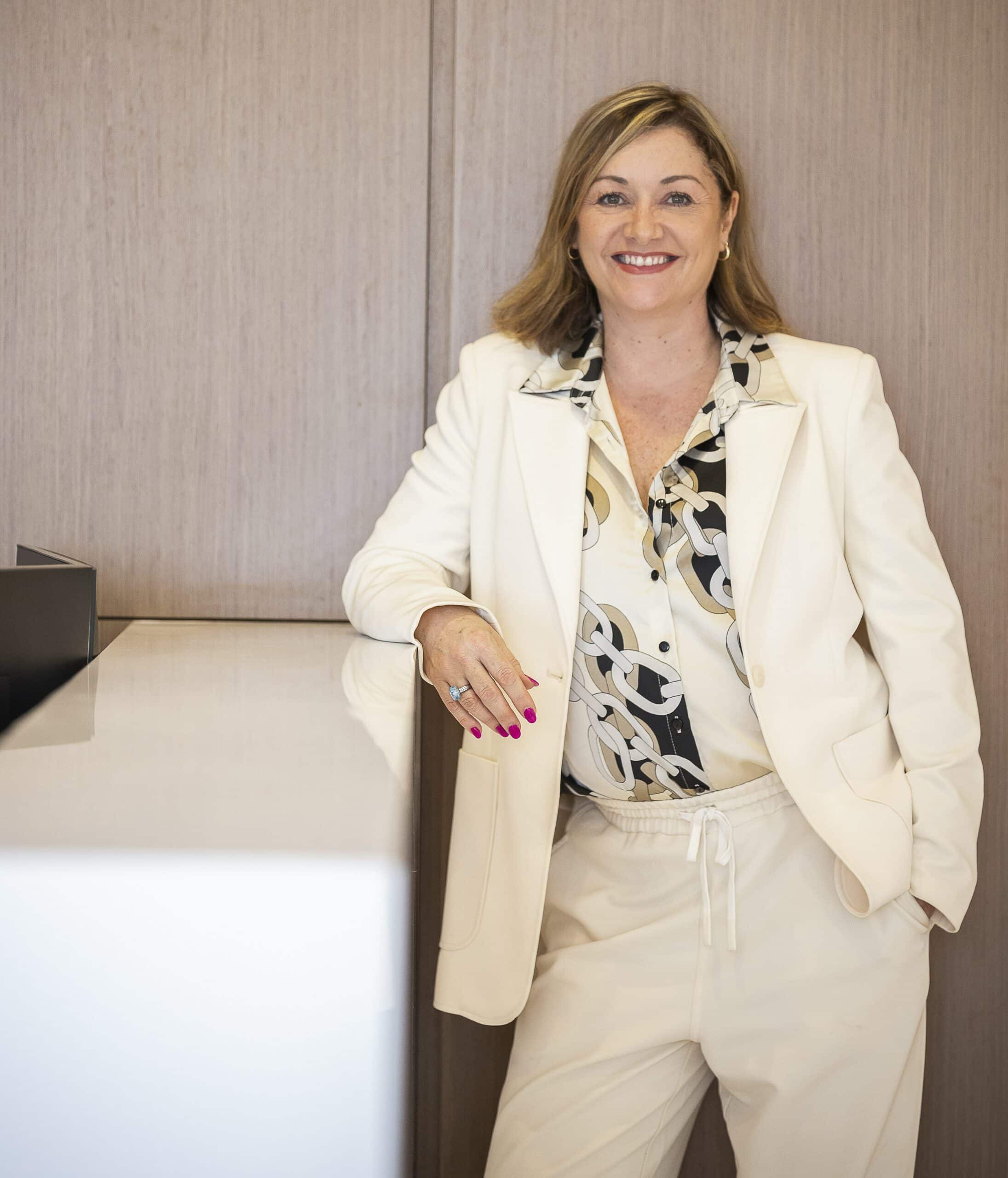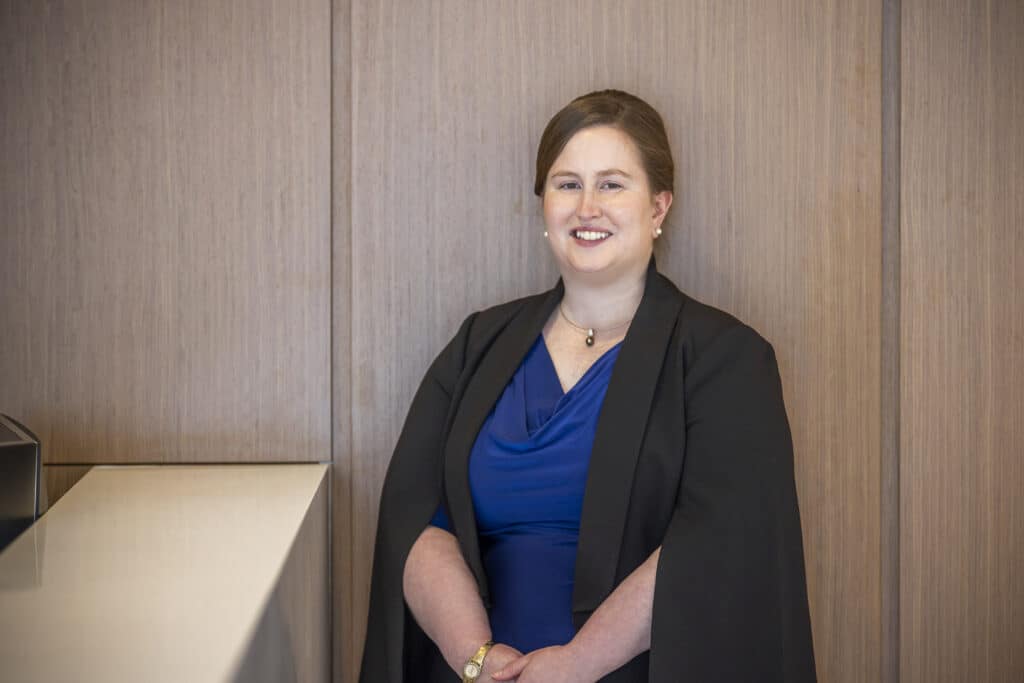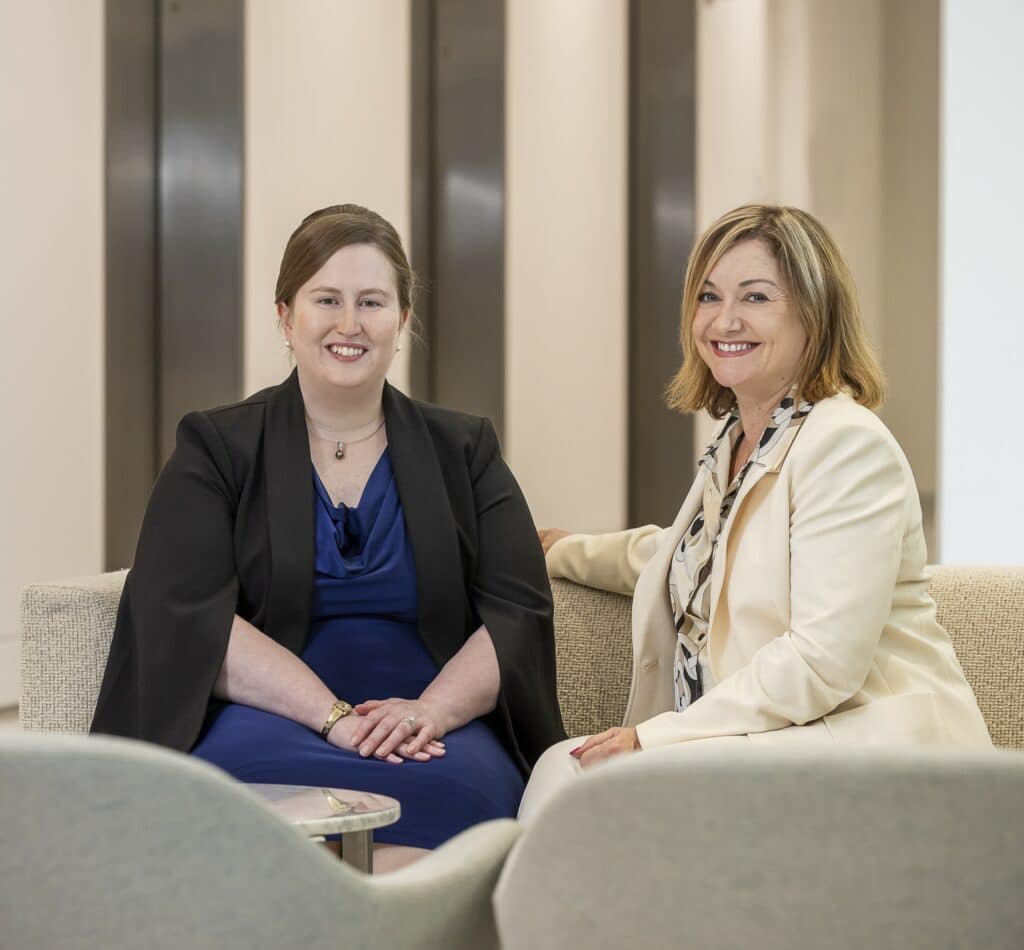Lisa-Marie McKechnie and Kathy Neilson joined Piper Alderman at a time when super funds and their trustees are facing a regulatory and legal minefield. They’re dealing with growing regulation and surveillance across the likes of insurance, disclosure, and ESG as legislators and regulators move to protect members.
“There are so many things happening all at once and super funds don’t have endless resources,” says Lisa-Marie. “Their staff are stretched. If you speak to any general counsel of a super fund, they’re flat out.”
Trustees are turning to the likes of the dynamic duo to help them navigate a path through this uncertainty and complexity.
The funds successfully handling this challenge are being proactive. They’re not just getting top-level legal advice, they’re creating cultures that encourage constantly learning and improving processes; they’re getting ahead of regulatory changes; they’re hiring more resources inhouse, particularly general counsels; and, above all, they’re upskilling staff through legal and compliance training carried out by the likes of Lisa-Marie and Kathy through ASFA.
From classroom to career: The road ahead with a law degree
Growing up in Melbourne as a twin, Lisa-Marie didn’t want to be a lawyer. She wanted to be a journalist. But her father said: “Well, you can be a journalist with a law degree. You’re going to law school.”
She started commerce law at Melbourne University, but realised she didn’t like stats or accounting, so she moved to arts, majoring in psychology and minoring in criminology. She also studied Italian, which she still speaks.
In her fourth year of university, Lisa-Marie had worked as a seasonal clerk at a small law firm, Rogers & Gaylard, and when she graduated she joined full-time as an articled clerk. She was thrust into the world of insurance litigation, grappling with up to 70 files at any one time.

She eventually moved into personal injury litigation and DLA Piper (then Phillips Fox) poached her to work in their litigation team, particularly on insurance litigation.
Her first foray into financial services and super came when in 2006 she moved across to ‘big six’ firm Minter Ellison and she handled a big case for the Stevedoring Employees Retirement Fund. “I really loved it. And from then on I didn’t look back.”
She began building her practice in superannuation and litigation, particularly total and permanent disablement litigation.
Lisa-Marie became a partner at Mills Oakley in 2010. It was a special moment. Her father was standing next to her when the offer of partnership arrived on a fax machine.
After nearly ten years she moved to EY to establish their financial services law practice alongside Michelle Segaert, before she eventually decided she was more suited to private practice in a more traditional law firm.
At EY, Lisa-Marie met Kathy Neilson who’d been hired by another partner.
“But when I came on the first day, it actually turned out that EY wanted me to work with Lisa-Marie who was a new partner in the financial services law team there,” Kathy says.
Kathy herself grew up in Canberra. “I always wanted to be a lawyer, I think from watching television.”

After graduating from ANU, she worked for a year as a tipstaff (assistant) to the former NSW Supreme Court Judge, Paul Brereton. Then she joined Clayton Utz’s graduate program. As part of the program, the firm rotated graduates through different areas and Kathy chose corporate as her preference. But while she sat in corporate, her partner was focused on financial services, which gave her exposure to the industry.
She then gained exposure to superannuation during a stint at ASIC where she worked on the Regulatory Guide 97 (RG 97) fees and cost disclosure regime for managed investment schemes and superannuation.
Discovering new horizons at Piper Alderman
In mid-July 2023, Lisa-Marie joined Piper Alderman as a Partner – Financial Services with a remit to create a superannuation practice. (The firm already had a financial services and fintech team.) She brought Kathy across as Partner. Along with a senior associate who also joined from EY, they managed to create an all-female superannuation team.
“We had a bit of good timing because they [Piper Alderman] wanted to establish a practice and they really wanted female partners,” Lisa-Marie says. “But having an all-female team was not by design, it just happened.”
“It’s an incredibly close-knit team that we have,” she adds. “We’re all more than friends really. For me it was really enjoyable to be able to bring Kathy across as a partner.”
Both are thrilled with the move and the firm’s collegiate environment, which sees partners share knowledge around client opportunities.
There is no shortage of work for the dynamic duo.
The complexities of superannuation need constant attention
“I think they [trustees and leaders] do feel a bit overwhelmed with the amount that’s going on, and superannuation law can be very technical.”
Superannuation is obviously highly regulated; trust law and the Superannuation Industry Supervision Act covers trustee duties, including acting in the best interests of members; the Corporations Act imposes disclosure obligations; and insurance is also highly regulated.
Kathy notes that additional challenges are posed due to the fact that super is dual regulated by both ASIC and APRA; and members can escalate complaints to AFCA.
Lisa-Marie says regulators are heavily focused on preventing harm to super members across the likes of insurance, fees and access to information.
Trustees have been grappling with existing regulation, including regulators’ focus on compliance with specific laws. ASIC, for example, is keeping a close eye on Design and Distribution Obligations (DDO), introduced in 2021.
But funds are also preparing for a raft of new laws and obligations, including the Prudential Standard CPS 230 Operational Risk Management and the Financial Accountability Regime (FAR), both of which come into effect in 2025.
ASIC has also been performing extensive surveillance around issues such as timely payments of death benefits and greenwashing.
So how are trustees dealing with this avalanche?
It has obviously created resourcing challenges and Kathy says some funds are struggling to recruit experienced people, particularly in compliance.
But many funds are facing the challenge head on.
Lisa-Marie says creating the right culture is vital to meeting the growing complexity and volume of legal issues. “The funds that I see are doing well have a good culture where they take feedback, even a complaint, as an opportunity to improve a particular system or process.”
Successful funds are also making an early start on legislative changes, particularly CPS 230 and FAR. “But they’re also across ASIC and APRA’s enforcement priorities,” Kathy adds.
One important step, Kathy says, is for funds to proactively monitor what ASIC and APRA are saying, which allows funds to see where the regulators are heading and take action to improve their processes. “It might just be a media release or short report; it may not be a massive report or statement.”
Still, “that [monitoring for funds] is quite hard because they’re resource and time poor.”
“The funds that I see are doing well have a good culture where they take feedback, even a complaint, as an opportunity to improve a particular system or process.”
To deal with the deluge, funds are beefing up legal resources and particularly hiring general counsel. “The general counsel is someone who can actually steer through [issues and challenges] and assist staff to get the right advice when they need it,” Lisa-Marie says.
Lisa-Marie and Kathy like to build close, long-term relationships with general counsels and funds. Lisa-Marie, for example, has worked with Hostplus for more than 15 years. “They are very loyal to the service providers that they’re used to working with, and Kathy’s now working with them a lot as well.”
But alongside outsourcing, culture and resourcing, to navigate the complex regulatory and legal environment, funds are also building their team members’ skills through training.
Training and education are important safeguards for funds
Both Kathy and Lisa-Marie have a long history of contributing to ASFA’s professional development program and have run dozens of sessions.
Kathy is a regular contributor to ASFA’s continuing professional development products, SuperCPD and SuperCPD Trustee, on topics such as trustee indemnity issues, cloud outsourcing, anti-money laundering, fund audit requirements, and fees and costs disclosures.
The day after we speak, the duo were running a session in Brisbane for Queensland-based funds on dispute resolution and complaints. The session was a chance for funds to talk through their experiences with AFCA, how they’re identifying systemic issues, and how they’re creating reporting that feeds information about complaints to senior management and boards.
On September 12, Kathy and Lisa-Marie presented a session on RG 97. “That’s a really difficult and technical area of the law,” Kathy says. “I think it’s good that ASFA is running that session to refresh everybody.”
Lisa-Marie says they run their sessions in a ‘small round-table type arrangement’ with Chatham House rules so people feel free to say what they want. “I think ASFA does that very well: bringing people together to share knowledge.”
While it’s important for funds to train their staff, Kathy says the funds’ leaders also need to upskill.
“I think they [trustees and leaders] do feel a bit overwhelmed with the amount that’s going on, and superannuation law can be very technical,” she says.
Kathy notes that area where more training would be good is trustee duties. “When they’re making decisions, that’s really the framework that the trustees have to see everything through and think about at all times.”
“At the end of the day, the trustee has got to look at it through those basic duties around what’s in the best interest of the member,” she says. “For example: is the member actually able and does the member have capacity to make decisions around their super account, or is it more appropriate for an attorney to be acting? And all of those decisions have to be taken through the lens of what’s in the member’s best financial interest.”

Balancing life with building the practice
Both Kathy and Lisa-Marie have busy professional lives. How do they manage?
Kathy became engaged during her first week at Piper Alderman. “So I became a partner and got engaged all in the first week, which was pretty amazing.”
Fortunately, she lives close to the office and walks to and from work, which allows her to get prepared in the morning and unwind in the evening.
Lisa-Marie is also a newlywed; she got married for a second time two years ago. Combined, they have four kids, three dogs and a cat. Her dogs provide a release. “I spend a lot of time walking them and playing with them.”
“A shout out to my husband. He does a lot and really looks after me and enables me to focus on building the practice with Kathy.”
Building the practice will be the focus for the dynamic duo for the foreseeable future, and the huge legal issues facing funds will keep them busy and in high demand.
“We swim in our lane,” Lisa-Marie says. “We know what we’re good at doing and we don’t try to be everything to everyone.”
| Lisa-Marie and Kathy’s next face-to-face workshop Implementing SPS 515 in light of the members’ best financial interests and other trustee duties is being held in Melbourne, Sydney and Brisbane on 16, 29 and 31 October respectively. Find out more details or register here. |




































